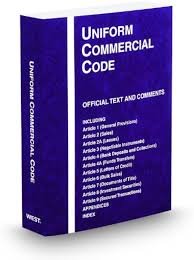It’s been a while since I created a good blog post. Scanning my brain for topics, I started gravitating toward the idea, “state of OSINT” or what’s new for 2025. OSINT does not change much year to year, and I was not arriving at anything bloggable. The fact that the obvious answer did not come right to me, perhaps gives away the story. Let’s see.
Read MoreI made the promise that I would put up a post a week in 2024. Believe me, I can find 52 things to say. I do not, however, ever have 52 weeks of time to write. There are cases and clients and a whole host of other concerns some of you know about. Thus, the lofty goal of 52 was only 75% off, although I do have one pending post besides this for the year. I did put up 13 posts. Behold the lessons from the 13 posts to date.
Read MoreYou only know you failed at due diligence when you have failed at due diligence. When you are faced unexpectedly with a criminal for an employee. When your computer tech turns out to be a North Korean spy (true story!). When your business partner has a track record of failures. As Wayne Gretzky might also say, you miss 100% of the things when you do not search.
Read MoreI’ve written about this before, as I put it way back in 2022, “It’s not what you find, it’s what you know when you find it.” I really should have said, It’s not what you find, it’s when you know you’ve found it. See, much of what happens in open-source research is pre-ordained. It just is. Yet, a lot what you really find, well, it depends.
Read MoreA good friend and colleague gave me some honest feedback on a recent blog post: write shorter pieces. Alas, I cannot help myself. I am in love with my Scooby Do references; the world of OSINT is never as simple as some would like it. Real estate searching is complicated and cumbersome and difficult for reasons I can enumerate at length. I was advised to make things shorter. Did I?
Read MoreIt took me from May to nearly the end of August to write. In aiming to re-establish a more regular posting schedule, I am going back to the well. Cover something you should know and be searching, Uniform Commercial Code filings, aka the “UCC.” I provide some background on this UCC thing, and I provide reasons to know UCCs. In talking and understanding UCCs, we can also understand why you should not search from a list.
Read MoreWhen we last met, the summer solstice had not happened. No presidential candidate had been shot. I too, have been busy period since that May 14 post. In the spirit of getting something, anything, back into the Opensouceresearchsphere, I’m going to address a frequent gripe: every name is common.
Read MoreWhen we last spoke, I defended my lack of blogging in the guise of productivity help. As much as I want to make a second career as a productivity guru, I need a few more streaks under my belt before hanging out my Life Coach shingle. I do, however, know a lot about open-source intelligence, online research, and the realm of public records. To that end, I have two mini posts for you in the spirit of catching up.
Read MoreYou come here to learn to be an open-source researcher. To peak behind the vital information curtain. Just the other day I sent out an email giving advice to someone on how he could DIY an asset search. I said, I have no secrets. I have nothing to hide here. If I practiced as much productivity as I know about productivity, this particular blog post would be about gathering intelligence, searching online, or this wine guy. Instead, it is about getting things done.
Read MoreThe prompt for this blog, like the prompt for some other blogs, came from Steve Mason, a well-educated and resourceful investigator in Arizona. He put on his LinkedIn the other day, that he opened his 1,500th case. Not only was it a good excuse to brag about his record, but he also used it as an opportunity to share lessons learned in going from one to one thousand and five hundred. It got me thinking that I don’t have a good case count of my own anymore. And I never need excuses for a few lessons of my own.
Read MoreA tendency lingers in OSINT to think it’s about finding the thrilling and the hidden, when the reality is, it’s about finding the obvious and the mundane. Master the basics by reading some journalism texts and go from there.
Read MoreAs you grow as an OSINT professional, you need to become adept at four things: 1) know how to scope, and what you need to find, 2) know where to look, 3) know how to look, and 4) know how to make sense of what you find.
Have you made any resolutions to get better in these areas? Please share.
Read More
Did you notice that I promised to put up a blog post every week in 2024? As I already missed a week, I’m making up for it by posting twice this week.
Read MoreIn my penultimate blog post of 2023, I pined for best years ever, noting 2023 wasn’t one of them for me. I will say that regardless of my personal travails, 2023 was a glorious year for open-source researchers, and 2024 could become our best year ever. Just look at how things used to be and how they are today. Still, as good as we have it, I’ll also tell you that it used to be better.
Read MoreI put nine posts on my website in 2023. Really, eight posts and one post announcing an extended hiatus. I’ve re-capped the year’s post for you.
Read MoreI sat down at the start of 2023 convinced it would be the best year ever.I was wrapping up a huge month. One with several days over 15 billable hours. I was cranking out memorandum upon memorandum on companies and individuals at a frantic pace. While dealing with family issues, it made the output more notable. I was on a roll. The forthcoming year was also a milestone birthday year. I had friends retired or retiring. I had other plans. I was convinced I could, would, build off of the late 2022 successes. I was not ready to give in or give up, but rather triple down. As I say, every day brushing my teeth, more cases, more clients, more known. As 2023 draws to a close, it was not the best year ever.
Read MoreThe dominant form of teaching and presenting Open-Source Intelligence, “OSINT” is via tables/charts of lists. If you need domain information, you go here, people stuff, go there. 30 years of practicing OSINT, I can tell you it seldom works that way. I find my people information in lawsuit documents. I find company ownership by reading the news. That UCC thing that shows up and you wonder what it means, I find it shows unknown relationships between companies. You have to know what you are looking for; have a good sense of what documents matter and have the ability to rampage through lots of records. That’s how I think you should research.
Read MoreEverything you need to do OSINT is listed below. Just memorize these four steps, and you, too, can be an OSINT practitioner.
Read MoreYou hear people talk about the smell test or sixth sense or “after so many searches, I just know.” The truth is, you don’t. You just get better at figuring out accuracy, authority, legitimacy.
Read MoreThe spark for this post came via ace investigator and colleague of mine, Steven Mason. His post. He wrote about data hierarchy—go read it, there’s some really good points. What makes the post even more valuable was that it drew in some disagreement. A commentator wrote, “I respectfully disagree with your take on OSINT. Data and intelligence are not synonymous, nor are credibility, authenticity, and value.” My initial thought was this is gobbledygook. What is data. What is intelligence. It is an interesting and confounding rabbit-hole.
Read More



















